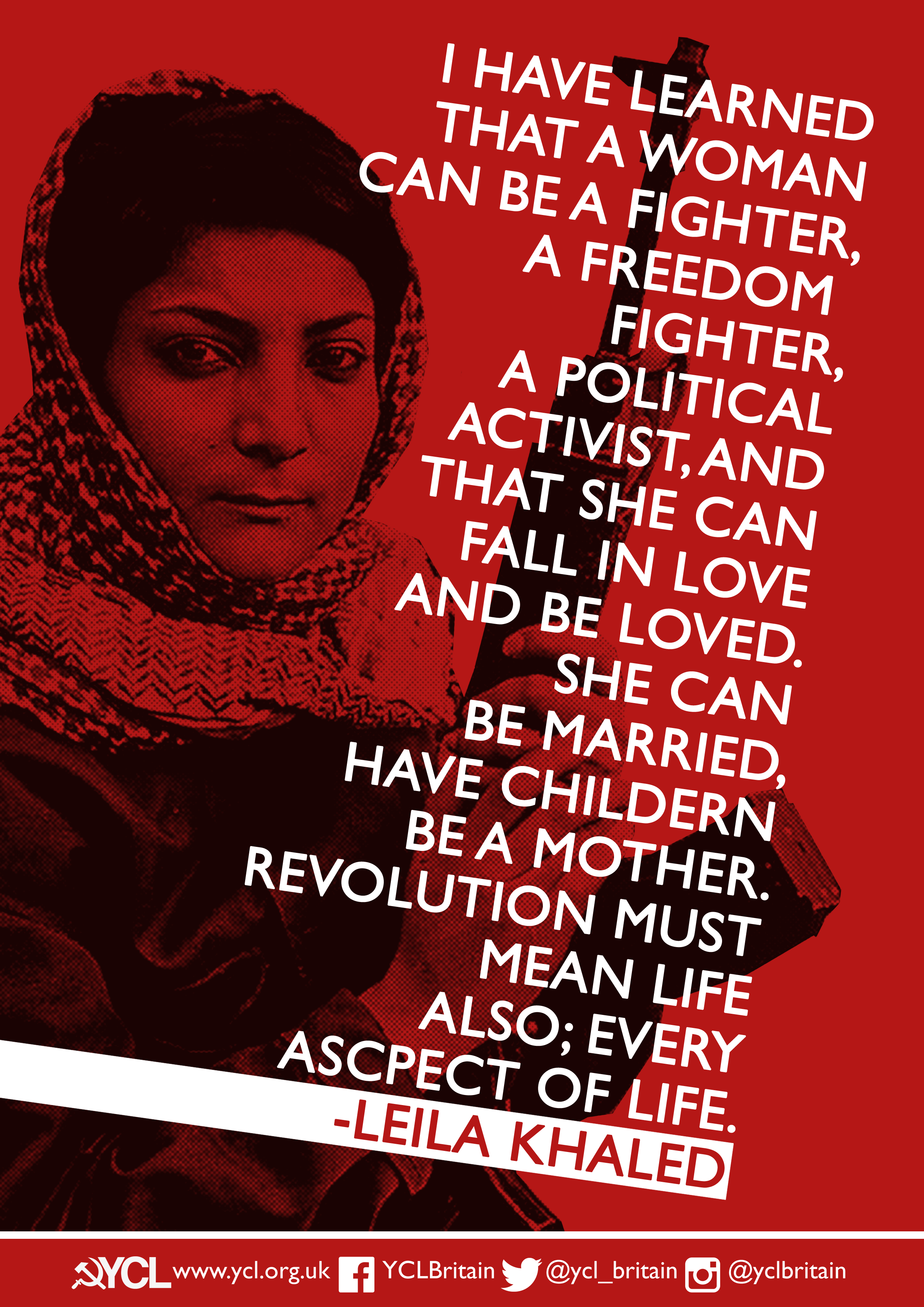 As part of a month long build up to International Women’s Day Celebrations on the 8th of March, the YCL will be publishing daily articles highlighting the exemplary role played by women in the international communist & working class movement.
As part of a month long build up to International Women’s Day Celebrations on the 8th of March, the YCL will be publishing daily articles highlighting the exemplary role played by women in the international communist & working class movement.
In today’s post, we discuss the life and work of Leila Khaled, a leading figure of the Popular Front for the Liberation of Palestine (PFLP).
YCLers are encouraged to host, support and participate in celebrations locally to bring the message of International Women’s Day into Our workplaces, colleges and schools, and communities.
Leila Khaled (1944) was born to Lebanese parents living in British-occupied Hafia, Palestine on the 9th of April 1944. Four days after her fourth birthday, Leila and her family were among the 800,000 Arabs expelled from their homes during the Nakba (literally, ‘the Catastrophe’), becoming separated from her father. Khalid grew-up a refugee in Lebanon, facing constant reminders of the unjust situation of herself and the Palestinian people. At the age of fifteen, she joined the Arab Nationalist Movement, the Palestinian branch of which would later form the Popular Front of the Liberation of Palestine.
On the 29th of August 1969, Khalid and fellow PFLP member Salim Issawi hijacked an El Al plane traveling from Rome to Tel-Aviv. The Boeing 707 was diverted to Damascus, and upon the safe landing Khalid and her comrade evacuated the passengers and crew from the aircraft before eventually returning to Palestine. The hijacking brought the struggle of the Palestinians to worldwide attention, and Khalid herself became a popular symbol for the Marxist-Leninist movement, with her image appearing on murals, art, television and posters in Palestine and across the world, even to this day.
After undergoing plastic surgery to make herself less recognisable, seeing it as only a minor sacrifice, she attempted to hijack a second plane travelling from Amsterdam to New York in September of 1970 but was thwarted by Israeli skymarshals and placed in police custody in London.
Much of the British working-class respected Khalid for her commitment to Palestinian liberation and ensuring that no passengers or crew were ever harmed during her hijackings. It was this support coupled with another PFLP hijacking by a completely unarmed operative in that same month of her imprisonment that led to her being released by the British authorities. After the decline of the PFLP over the decades, she would return to Britain to speak with supporters of the Palestinian people, until her visa was denied in 2005.
As a Marxist-Leninist, Khalid always spoke of Palestinian liberation and Socialism as deeply interconnected, drawing on many Communist theories and examples from Cuba, the Soviet Union and China. Khalid also stressed the importance of understanding the unique material conditions of Palestine and adapting to these, saying: “[The PFLP] don’t just copy what happened in Cuba; we develop our own ideas.”
Khalid now lives in Jordan with her husband, and whilst the PFLP has moved-on from their strategy of hijacking, she has no regrets about what was done, and continues to travel and give talks to Communist organisations across the globe, continuing to campaign for the Palestinians.